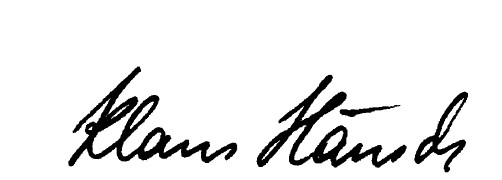Biography
Klaus Hänsch was born on 15 December 1938 in Sprottau in Silesia, a region that became Polish after the Second World War. In 1945, he and his family fled from Silesia to Flensburg in Schleswig-Holstein.
He received his degree in Political Science in 1965 and was awarded a PhD in 1969. He was a Member of the Praesidium of the Convention on the Future of Europe, 2002-2003. Hänsch represented the European Parliament at the Intergovernmental Conference for the adoption of the Treaty establishing a Constitution for Europe, 2003-2004.
He holds a number of academic accolades: he received an Honorary Doctorate from the University of Loughborough, United Kingdom and from the Poznán Academy of Economics, Poland where he was also a visiting lecturer. He is an Honorary Professor of the University of Duisburg.
Political Posts
• Since 1964: Member of the Social Democratic Party of Germany (SPD)
• 1968-1970: Editor of Dokumente (magazine on transnational cooperation)
• 1968-1970: Adviser to the Federal Republic of Germany's delegate for cultural affairs in the framework of the Franco-German Treaty
• Since 1970: Member of the public service trade union Verdi
• 1970-1979: Press attaché and, from 1977, special adviser to the Minister for Science and Research of North Rhine-Westphalia
• 1976-1994: Lecturer, University of Duisburg
• 1979-2009: Member of the European Parliament (SPD)
• 1979-1982: Member of the Committee on the Rules of Procedure and Petitions
• 1980-1982: Member of the Committee on External Economic Relations
• 1979-1992: Member of the Political Affairs Committee
• 1982-1994: Member of the Committee on Institutional Affairs
• 1992-1994, 1997-2009: Member of the Committee on Foreign Affairs
• 1981-1989: Socialist Group Coordinator for Foreign policy and Security
• 1987-1989: Chairman of the European Parliament's Delegation for relations with the United States
• 1989-1994 and 1997-2002: Vice-Chairman of the Group of the Party of European Socialists (PSE) in the European Parliament
• 1994-1997: President of the European Parliament
• Since 1997: Member of the Committee of the Notre Europe foundation in Paris
• 1998-2000: Chair of the mediation group for the expansion of Frankfurt airport
• 1997-2005: President of the management board and the general assembly of the Centre of European Studies, Strasbourg (CEES)
• Since 2000: Member of the Scientific Committee of the Berlin Institute for International Political Economy (IPE)
• Since 2005: Member of the Administrative Council of the National School of Administration (ENA) in Paris/Strasbourg
What's in the Archives
The archives of the Office of Klaus Hänsch (1994-1997) are comprised of over 700 files containing over 8,000 documents. Documents are arranged in files concerning specific procedures dealt with during the President's term of office and are organised to reflect the various areas of activity of the President's office.
Administrative and Legal Duties
PE4 P1 A00/ADJU
This series presents documents concerning relations with the Parliament's Secretariat, that is, with all the directorates-general plus the Legal Service.
Political Duties: Internal Relations
PE4 P1 B00/RINT
This series covers series dealing with relations with Parliament's various political bodies, namely the Conference of Presidents, the Bureau, the Quaestors, the parliamentary committees etc.
Political Duties: External Relations
PE4 P1 C00/REXT
This series concerns the President's activities representing Parliament to the outside world (President's speeches, public relations - visits, meetings etc.) and its relations with the other Community institutions and bodies. His role as Parliament's representative also includes the President's relations with Member States, non-member countries and the international organisations.
Correspondence
PE4 P1 D00/COUR
Finally, the last series contains correspondence classified chronologically as incoming and outgoing mail.
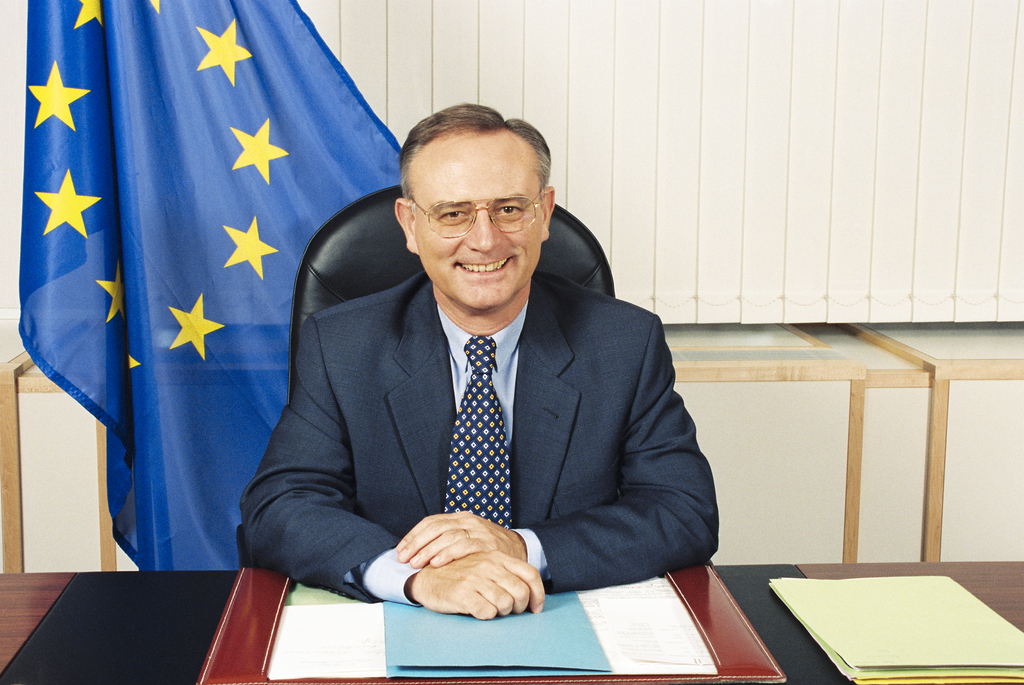 Portrait of Klaus Hänsch EP President in his office © European Union – European Parliament
Portrait of Klaus Hänsch EP President in his office © European Union – European Parliament
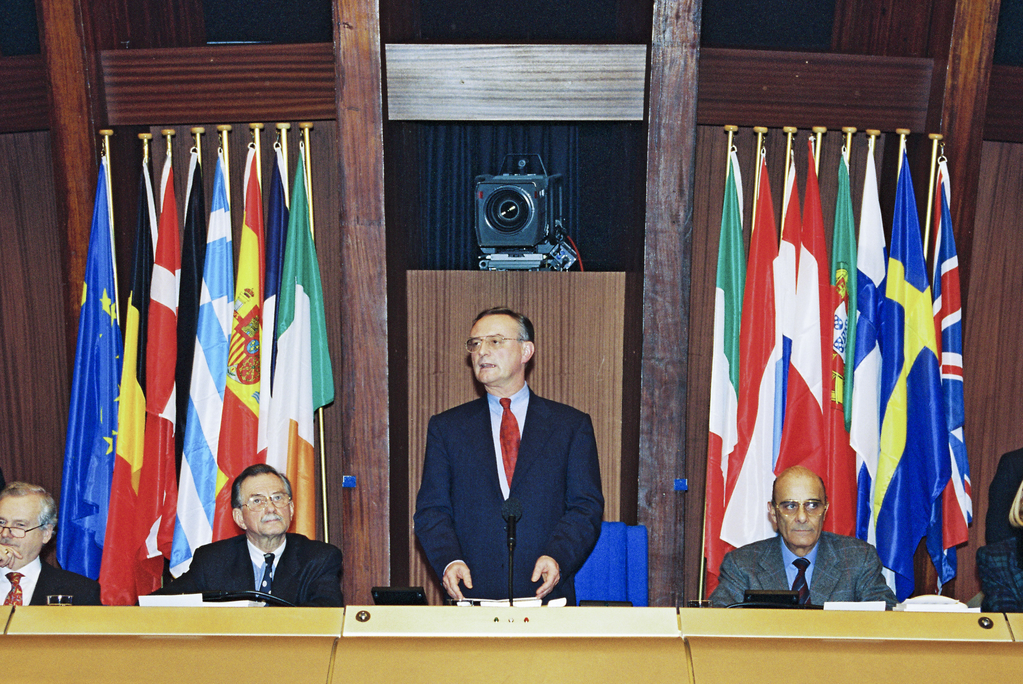 EP President Klaus Hänsch speaks at the arrival of the observers and MEPs for Sweden, Austria and Finland following the 1995 enlargement © European Communities 1995
EP President Klaus Hänsch speaks at the arrival of the observers and MEPs for Sweden, Austria and Finland following the 1995 enlargement © European Communities 1995
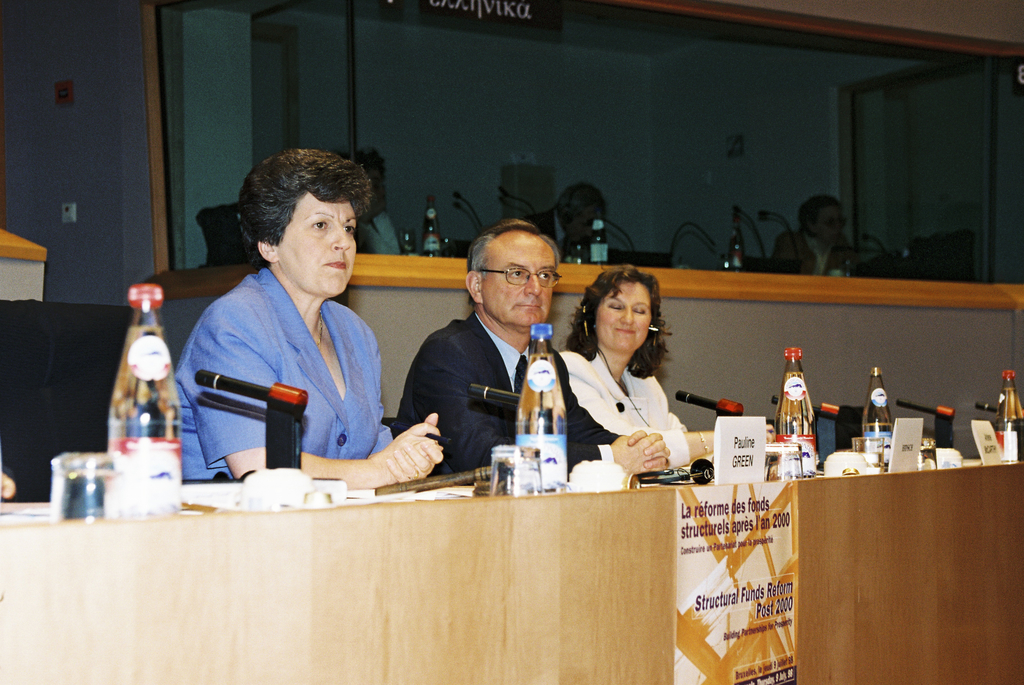 "Structural Funds Reform Post 2000" seminar. Pauline Green (L), Klaus Hänsch (C), Arlene McCarthy (R) © European Communities 1998 – European Parliament
"Structural Funds Reform Post 2000" seminar. Pauline Green (L), Klaus Hänsch (C), Arlene McCarthy (R) © European Communities 1998 – European Parliament
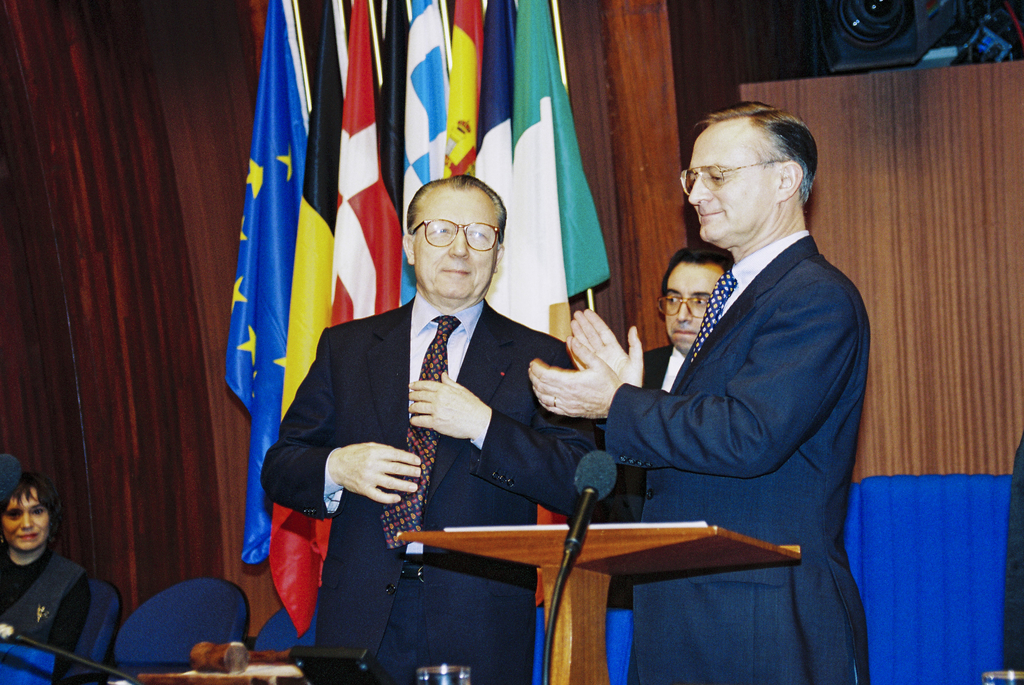 Homage to outgoing EC President Jacques Delors- Formal sitting, Jacques Delors (L), Klaus Hänsch (R) © European Communities 1995
Homage to outgoing EC President Jacques Delors- Formal sitting, Jacques Delors (L), Klaus Hänsch (R) © European Communities 1995
